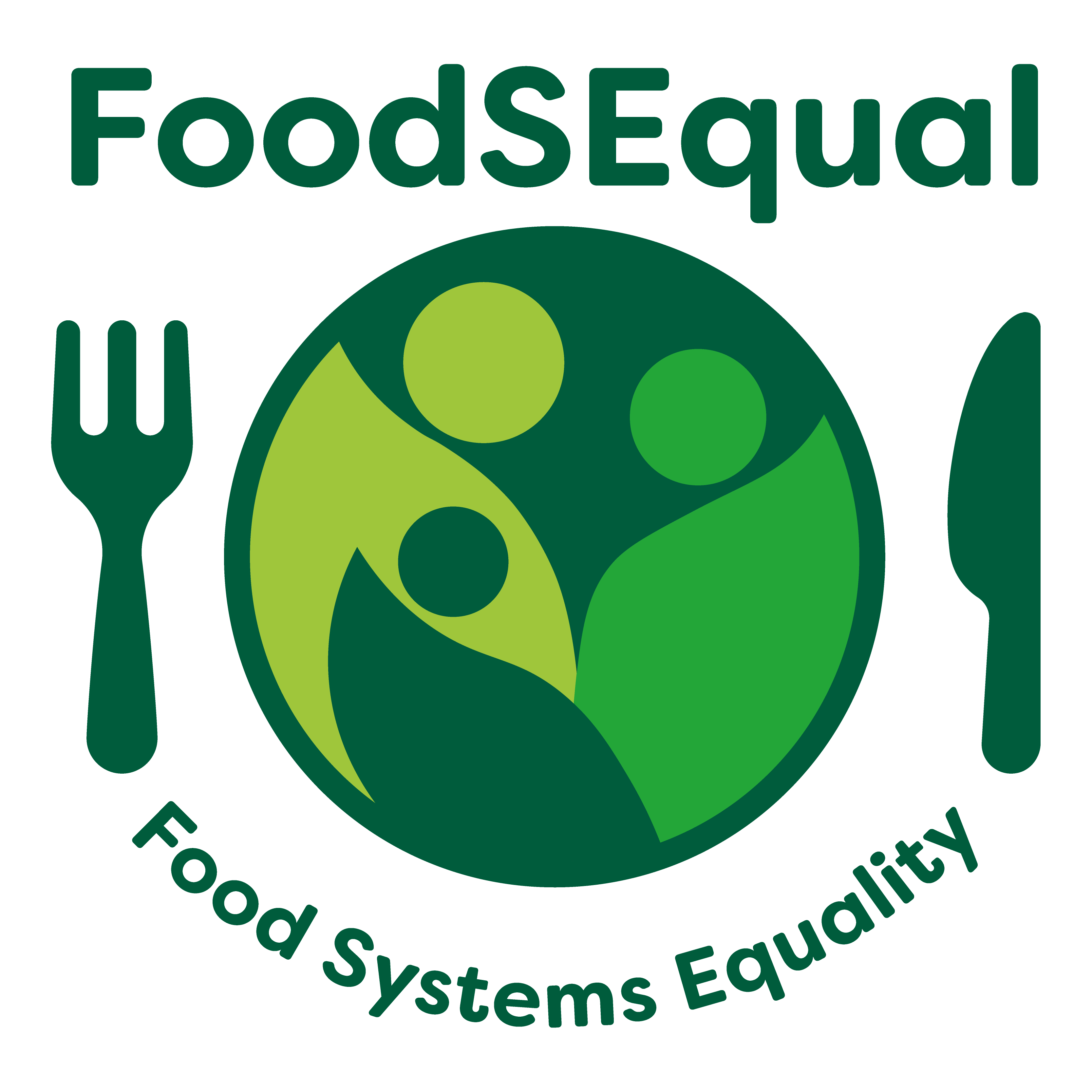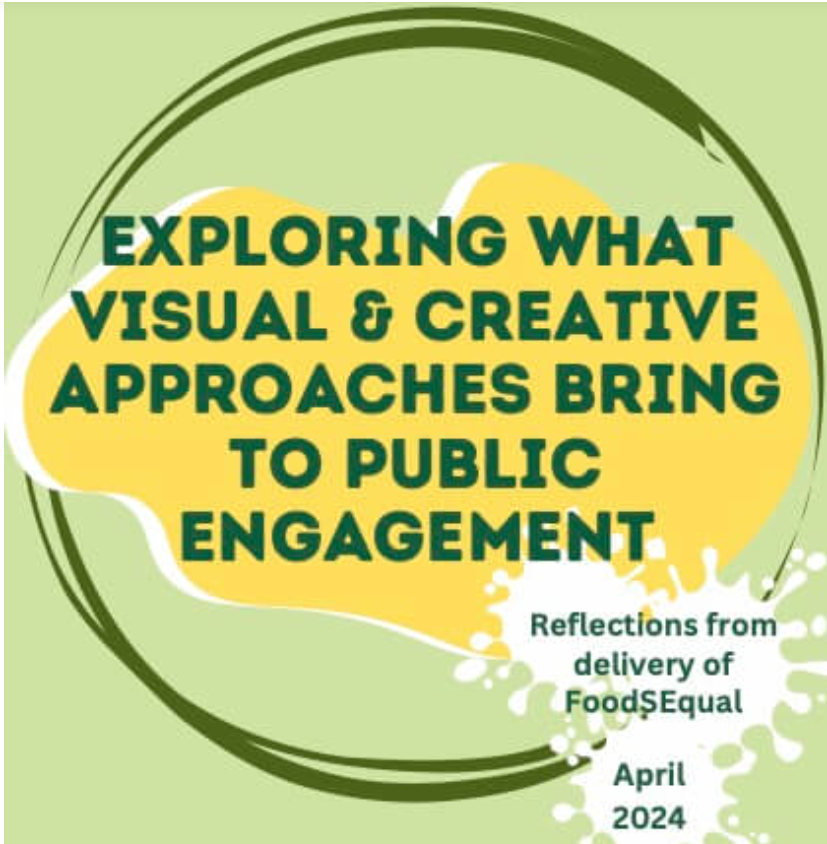There is so much focus now on research being inclusive and bringing different voices in. Creative and visual approaches are an important part of this. This co-created resource shares reflections about how the FoodSEqual Plymouth Team use them.
FoodSEqual is a five-year project funded by UKRI’s ‘Transforming UK Food Systems’ Strategic Priorities Fund. FoodSEqual aims to co-produce food system solutions with people living in disadvantaged communities. As part of this people connected to those communities are engaged as Community Food Researchers (CFRs). Hannah is exploring the experiences of CFRs as part of a PhD funded by the University of Plymouth*, and Yve Ashton is currently engaged as a CFR. and Hannah collaborated to co-create both the resource and this blog, funded by a University of Plymouth ‘Explore Award’ (public engagement focused).
So the question is, why visual and creative approaches?
Firstly, this is about quality engagement. We aim for events to be fun and special, for the community to know we took care. Our goal is that people enjoy themselves and want to come back.
Additionally, sometimes we get only a few minutes to engage people, or may need to engage at a distance as people pass through a space; visual approaches such as maps or videos can support this.
Finally, amongst the community we engage some have lower literacy levels. We do our best to not assume one way or another, treating everyone with dignity and sensitivity. We feel that everyone has valuable stories and ideas to bring, so we want to create spaces where all can contribute. Therefore, we use creative and visual approaches as standard.
We were accepted to present this resource at the National Co-ordinating Centre for Public Engagement’s ‘Engage conference’ in 2024, sharing the poems and giving out copies of the booklet in a ‘story telling’ session.
It felt a privilege to attend and share our ideas. The conference was very varied, meaning there was relevant content for both Yve and Hannah. Although some of it was quite academic, there were also community-focused and artistic contributions. For example, Emily Ahmed presented a physical balance scale people could play with to explore the balances of power.
Use the link below to view the booklet. For further information please email: hannah.gardiner@plymouth.ac.uk
Link to resource: https://foodplymouth.org/4309-2/
*Note: Hannah’s PhD supervisors are: Clare Pettinger (Director of Studies), Louise Hunt, and Mary Hickson (University of Plymouth)


